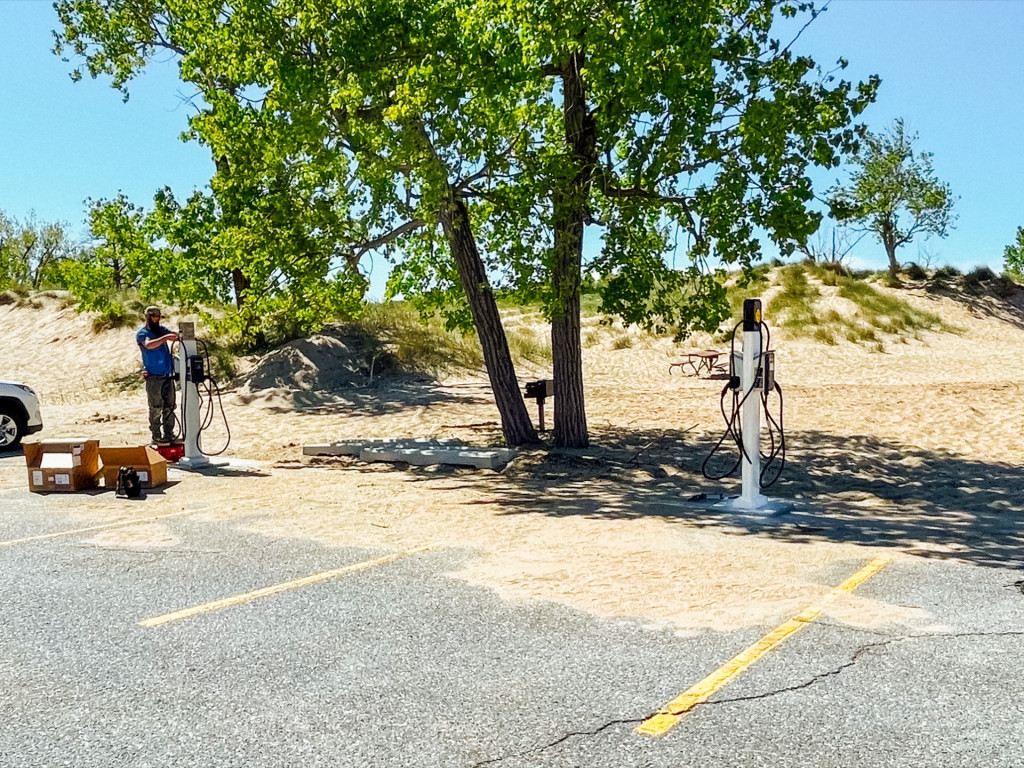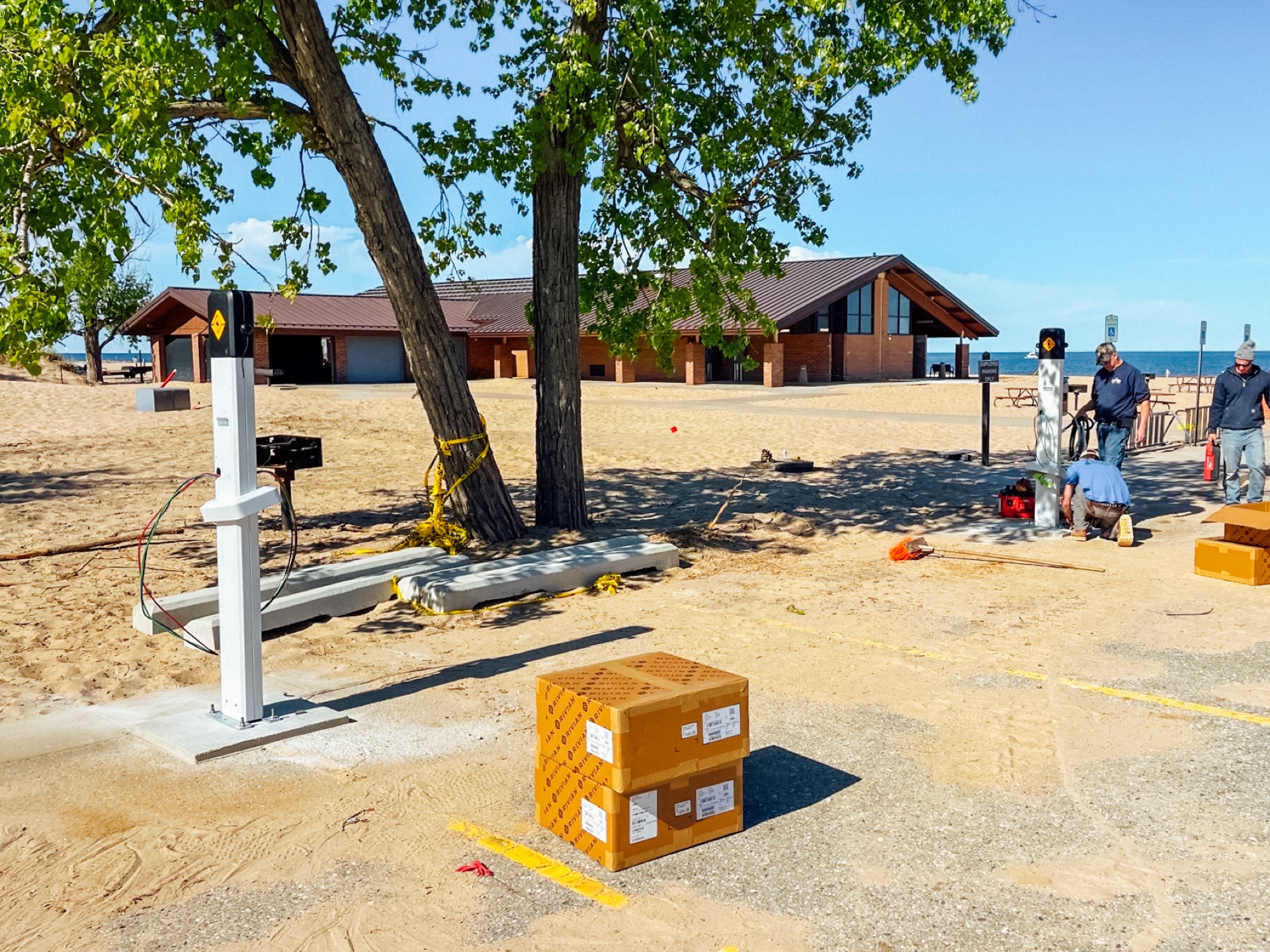More local governments across Michigan see EV charging as a relevant issue, but the number is still fairly low, according to a new University of Michigan survey, and those interested in EV charging see cost as a barrier.
While the survey is Michigan-specific, it’s the traditional hub of the auto industry and probably represents a greater awareness in rural areas of EV tech versus other states. Conducted last fall, it increased interest from local governments compared to a previous study conducted in 2019, but still leaves some room for improvement.
Just under 40% of local leaders surveyed said EV infrastructure planning is somewhat or very relevant—a 23% increase from 2019. Just over a quarter said EV charging isn’t relevant in their jurisdictions, compared to 40% in 2019.
2022 GMC Hummer EV pre-production at Factory Zero plant in Detroit, Michigan
Over a third of respondents (34%) said their community had too few public charging stations, up from 29% in 2019. A majority of those surveyed (53%) pointed to the cost of adding EV charging stations or lack of interest among residents (51%) as major barriers to further infrastructure expansion.
The survey also found an urban/rural divide, with village and township officials less likely to say that planning for EV charging is very relevant to their jurisdictions (at 14% and 10%, respectively) compared to officials of cities and counties (32% and 30%).

Rivian Waypoints chargers at Holland State Park, MI – Photo by Diane Dawson Wilks, c/o Michigan DNR
On the federal level, the Biden administration’s 500,000-charger national network will be laid out across some rural regions and small towns, but it depends on designated alternative fuel corridors. The administration has provided additional funds focused on rural areas—called out ambiguously as “low-income communities and non-urban areas” and depending on statistical designations.
Some smaller California cities and rural counties have been very eager to share their success with EVs and charging, but that was at the early adopter stage and at a time when EVs were less politically polarizing. Meanwhile, installing Level 2 chargers for commuters, shoppers, and more will definitely help in rural areas, too. And they don’t cost much.



